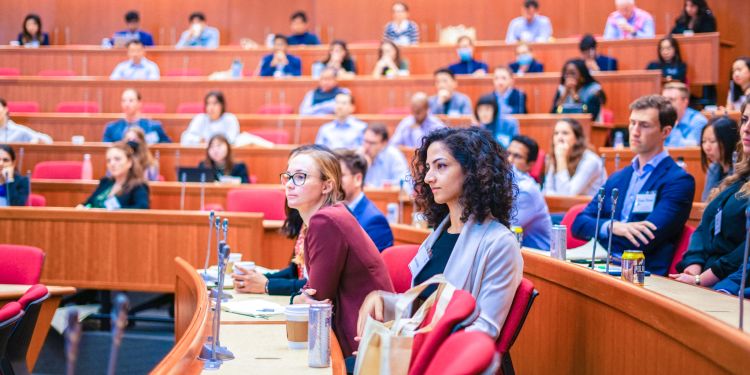Continuing Conversations are an academic offering developed by the Sustainability Club to fulfill a desire by MBA students to dig deeper into the environmental themes presented in cases taught during their first year. These faculty facilitated sessions offer an engaging discussion and opportunity to meet like-minded students, as well as a chance to connect over cases outside of the classroom and section.
Since its start in 2020, students have explored cases like “Project Helios: Harvesting the Sun”; “JetBlue: Relevant Sustainability Leadership (A)”; “Sustainability at IKEA Group”; “Indigo Agriculture”; and the latest conversation was on the case “Driving Decarbonization at BMW”, which describes BMW's electrification and decarbonization strategy and how the company measures carbon emissions throughout the life cycle of its vehicles.
The conversation, led by Professor Shirley Lu, attracted students from a variety of backgrounds, including impact investing, consulting, renewables, startups, ESG, climate tech, and those with experience working for major auto manufacturers including Audi, Ford, and Tesla. The session began with an overview of the case facts and new developments since the time of writing. Discussion expanded beyond the case to include the current landscape of emissions tracking and the range of regulatory and ratings agencies involved.
Students discussed if car manufacturers should be held accountable for their scope 3 emissions and the importance of this accountability in encouraging companies to develop products with a lower carbon impact. There was debate around the feasibility and accuracy of measuring these emissions but an overall agreement that tracking, reporting, and measurement can’t be ignored. Students explored the perspectives of different stakeholders and discussed the potential role of policy regulations and incentives in helping companies reach net zero goals.
The next day, students were invited to a question-and-answer session with Heather Henriksen, Harvard University's Chief Sustainability Officer, and Louis, Patrick, and Denise Grasso of Urban Mining Industries, protagonists of the case, "Harvard University and Urban Mining Industries: Decarbonizing the Supply Chain", facilitated by Professors Shirley Lu and Robert Kaplan. The case describes Harvard University's consideration to decarbonize its supply chain by replacing cement with a low-carbon substitute called Pozzotive®, a ground-glass material made with post-consumer recycled glass developed and produced by Urban Mining Industries.
The case protagonists shared that they see themselves as a disruptor of the industry with big market to grow into and the importance of scaling to drive environmental impact. The panelists emphasized the critical importance of a measurement and accounting system that takes a holistic view of emissions to help make informed decisions and hold every step of the supply chain accountable. There was also an emphasis on how Harvard has played a leading role in identifying and implementing these new technologies in their construction, and how early adopters can play a critical role in overcoming perceived technological uncertainty within the construction sector.
Students had the unique opportunity to dig deeper and ask questions of the case protagonists, uncovering new information about the case including what the major cost drivers are, whether they considered non-concrete alternatives, and what they see as the next frontier in urban mining.

